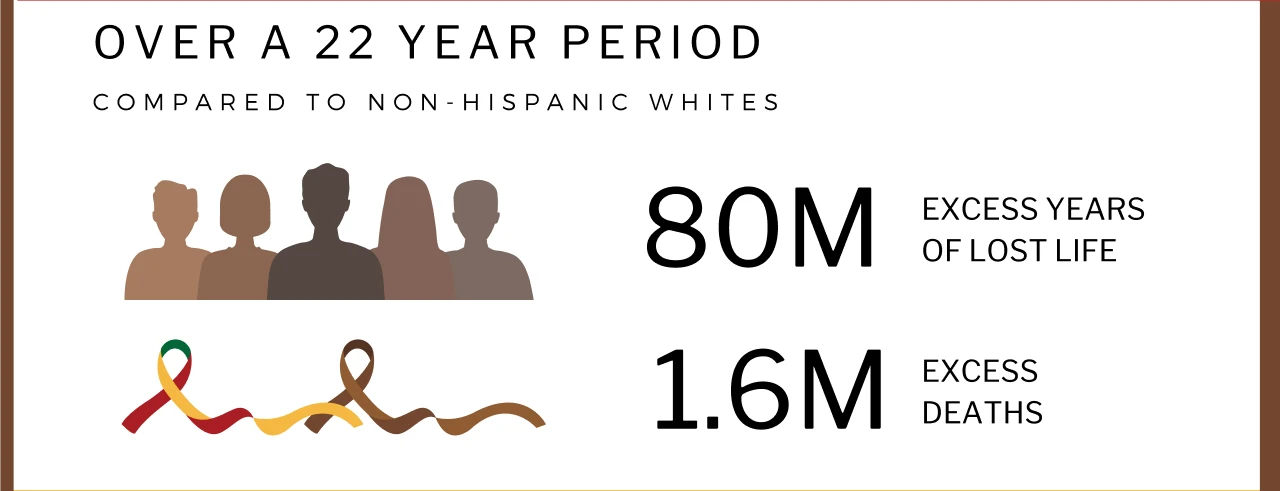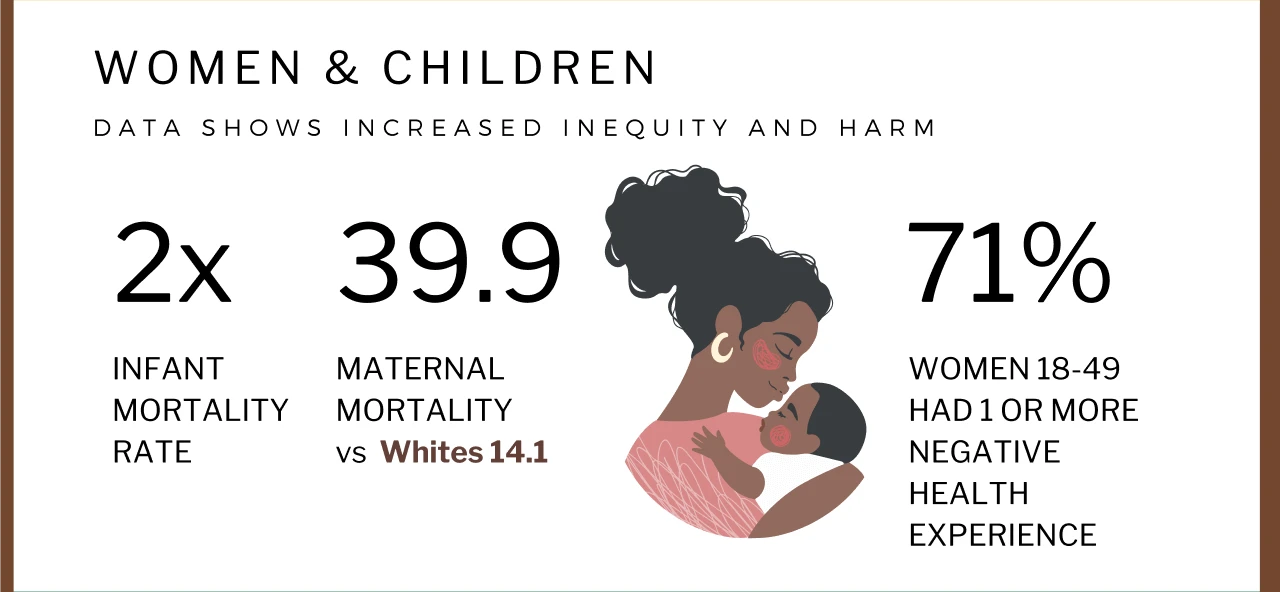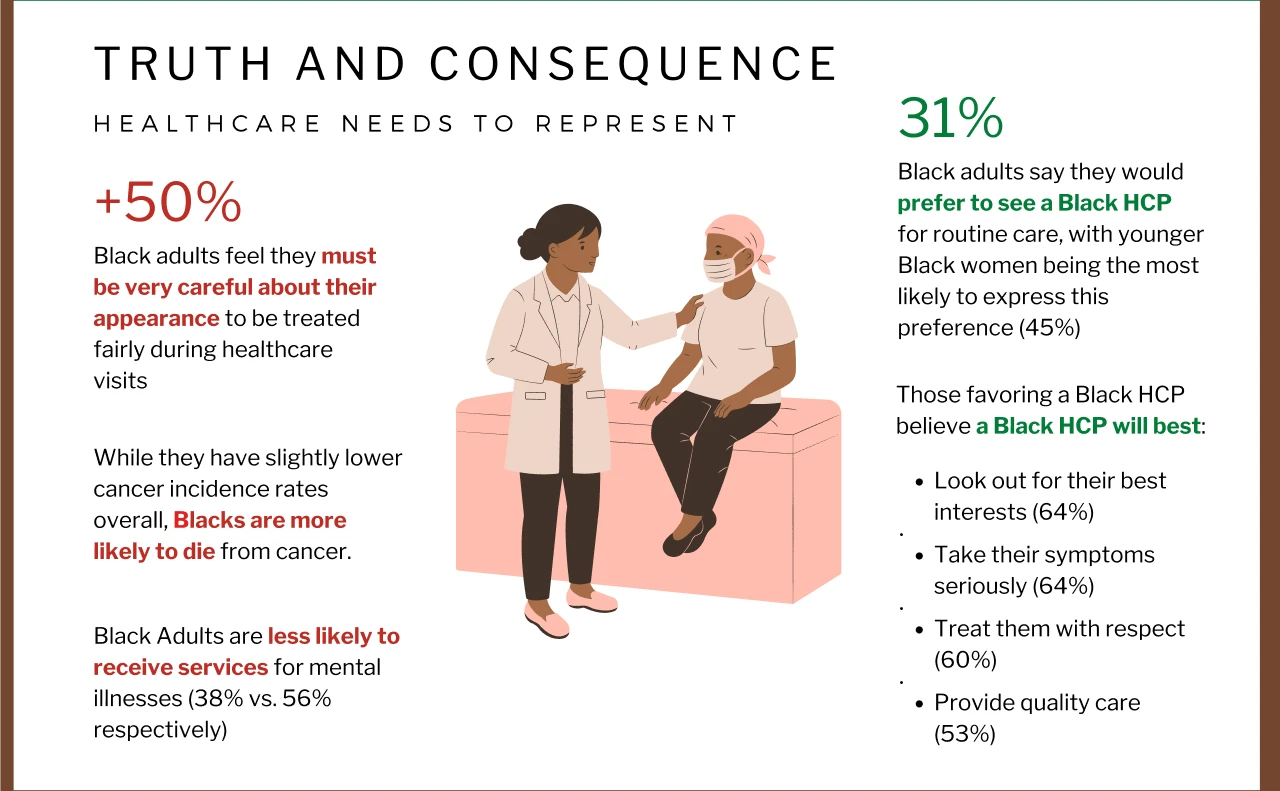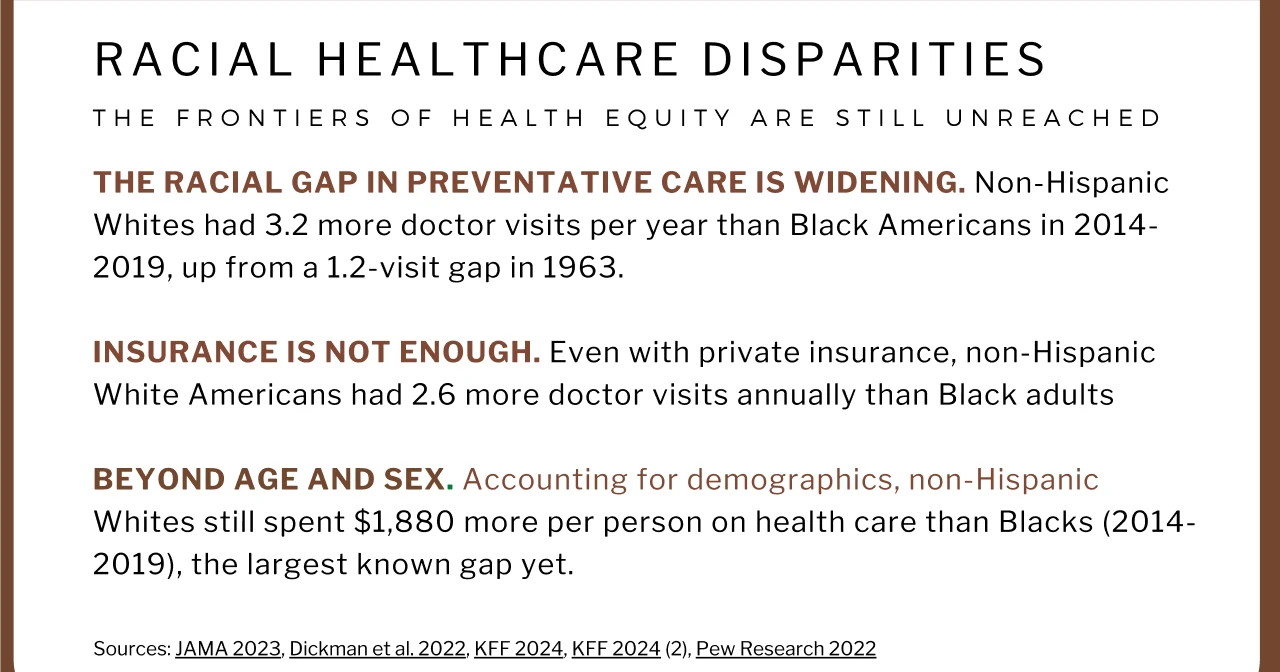






Illuminating the Black-White Healthcare Divide: A Call to Action on Juneteenth
In honor of Juneteenth, let’s celebrate Black Health by shining a light on the truth of Black Healthcare Disparities in America. The issue is far more complex than can be fully captured in a single infographic. We aim to highlight the injustices and dispel common myths surrounding the reasons behind the underserved Black American population. As healthcare marketers, we have a unique opportunity and responsibility to drive change through conscientious marketing and engagement, understanding the real-world contexts and realities of our audiences, and working towards healthcare equity.
Despite the generations of change, Black healthcare disparities continue across demographics, betraying deep biases and systemic problems in the healthcare system. At POCMA, we believe that every patient deserves the best care available. Together, we can help that happen if we empower our strategies and tactics with a deeper understanding about who we are reaching, and how best to reach them.
The Stunning Facts of Racial Disparity
Based on CDC data, a recent study revealed the staggering extent of the healthcare divide between Black and White Americans. Over a 22-year period, the Black population in the US experienced more than 1.63 million excess deaths and over 80 million years of potential life lost compared to the White population (JAMA 2023). The average lifespan is shorter, and the highest excess death rates were observed in heart disease, with Black and minority populations having a higher mortality rate in both heart disease and cancer (Mayo Clinic 2023).
When compared to non-Hispanic Whites in America, the gap between preventative care and diagnosis correlates strongly to earlier and more unnecessary fatalities for black patients. Clearly, more robust awareness campaigns, more frequent care enabled by a more inclusive healthcare system, and better patient treatments are needed to bridge the gap. We have to look at the multiple factors that contribute to healthcare disparities and start the work of strengthening HCP, patient, community, and systemic pillars that support black health.
Black Health Experiences
The healthcare divide affects Black Americans at every stage of life. (KFF 2024) (KFF 2024).
- Black infants are twice as likely to die as non-Hispanic White infants
- Black adults are less likely to receive mental health services (38% vs. 56% respectively)
- Black women have among the highest rates of pregnancy-related deaths at nearly 40 per 100,000 compared to 14 for non-Hispanic Whites
- Blacks are over twice as likely to die due to diabetes than their non-Hispanic White counterparts
- While Blacks have slightly lower cancer incidence rates overall, they are more likely to die from cancer
Black Responses and Preferences
A large majority of black patients experience or fear unfair medical treatment, biases from healthcare providers, negative outcomes, and diminished patient outcomes when thinking about or receiving care. Over 50% Black adults feel they must be very careful about their appearance just to be treated fairly during healthcare visits (KFF 2024). This reality results in fewer ambulatory care visits, compared to their non-Hispanic white counterparts. And, it impacts not only black trust in healthcare, but healthcare seeking behavior and confidence.
Research shows the impact of negative black health experiences. Pew Research 2022
- 71% of Black women ages 18 to 49 have had at least one negative healthcare experience
- 31% of Black adults say they would prefer to see a Black doctor or healthcare provider for routine care
- Among those who prefer a Black provider, majorities think a Black provider is better than others at looking out for their best interests (64%), taking their symptoms seriously (64%), treating them with respect (60%), and providing quality care (53%)
Studies have shown that minority populations are more likely to share health information with and adhere to treatments created by healthcare providers (HCPs) of the same race (AAMC 2023). This preference is particularly strong among younger Black women, with 45% expressing a desire to see a Black provider for routine care (Pew Research 2022).
For healthcare marketers, this presents an opportunity to create inclusive materials in partnership with the Black community to address specific health problems, build identity-based trust, and provide culturally relevant resources.
Dispelling Myths for Marketers
It’s essential to recognize that the healthcare divide persists even when accounting for factors such as insurance coverage, age, and sex. Per an important article on U.S. Healthcare trends (Dickman et al. 2022):
- The racial gap in preventive care is widening. Non-Hispanic Whites had 3.2 more doctor visits per year than Black Americans in 2014-2019, up from a 1.2-visit gap in 1963.
- Insurance isn’t enough. Even with private insurance, non-Hispanic white adults had 2.6 more doctor visits annually than Black adults
- Beyond age and sex. Accounting for demographics, non-Hispanic Whites still spent $1,880 more per person on health care than Blacks (2014-2019), the largest known gap yet.
A Call to Marketers
Health is a fundamental right that predicates all other aspects of life. Equality cannot truly exist until we all are given the equal opportunity to have the best quality of life and circumstances from which to achieve. As we commemorate Juneteenth, let us recommit ourselves to addressing the Black-White healthcare divide through conscientious marketing, engagement, and a deep understanding of the communities we serve. Together, we can work towards a future where healthcare equity is a reality for all Americans.